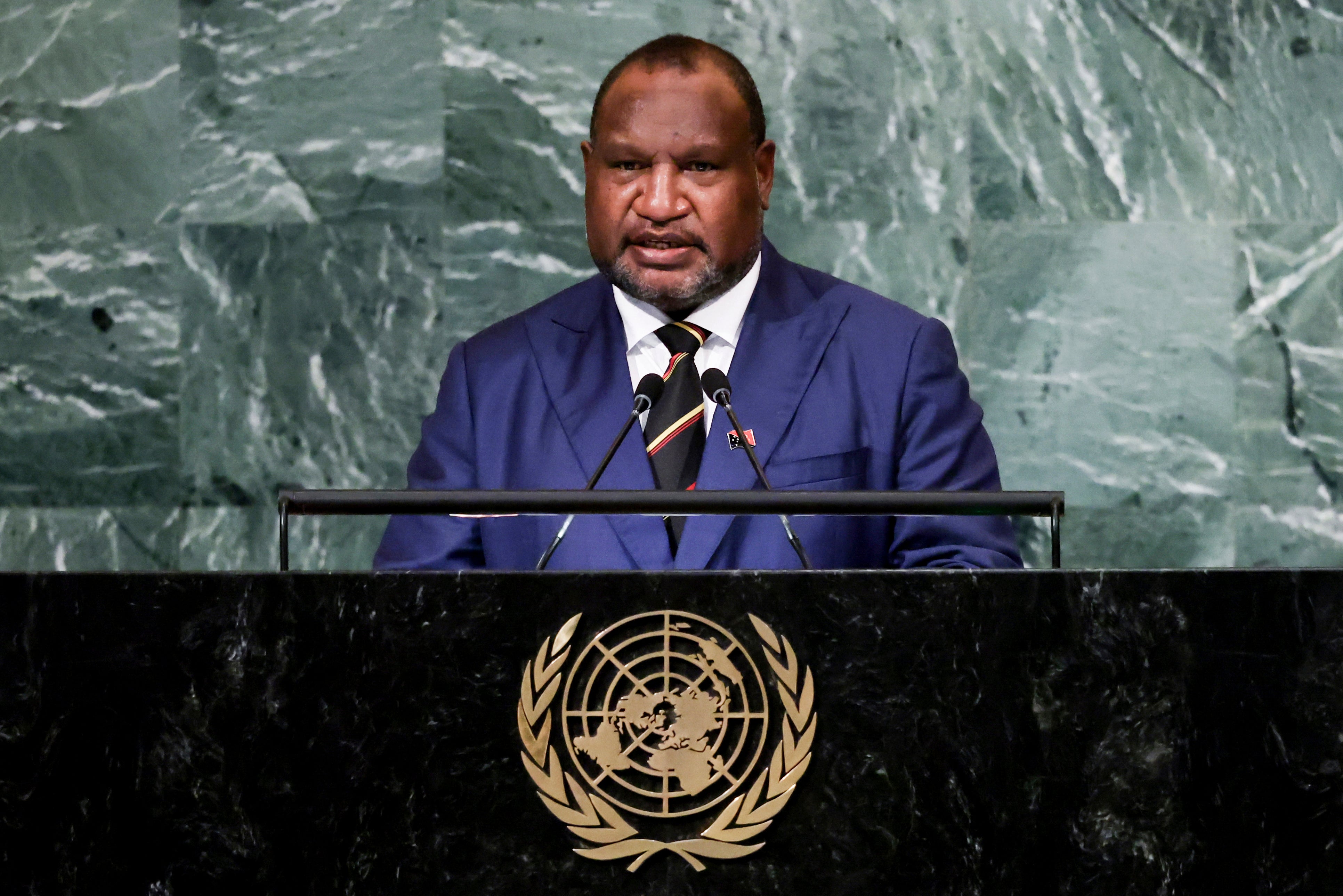Why the rest of the world is focussing on a tribal clash in Papua New Guinea’s remote highlands
Violence between two tribal groups and their allies began on Sunday in the Wapenamanda district
A tribal clash in Papua New Guinea’s remote highlands in which more than 20 people were shot dead on Sunday has put a growing internal security problem under the microscope in the strategically vital South Pacific island nation that has garnered closer military attention from the United States and China.
The rival powers are increasingly keen to striking security pacts with the developing nation whose international significance has grown in tandem with China’s increased regional influence.
The violence between two tribal groups and their allies began on Sunday in the Wapenamanda district of the Enga province in what one police officer described as the “largest” flare-up of violence the region has seen.
Dead bodies were recovered from the roadside, grasslands and hills and more are expected to be found in the bush, according to ABC.
The death toll was revised down by police from an earlier figure of 64, although local media reports continued to include higher numbers of both combatants and local civilians killed.

Police confirmed fighting was ongoing between Ambulin tribes and their allies and Skikin tribes with their allies.
Here’s a look at some key issues surrounding Papua New Guinea’s internal security concerns:
A history of Papya New Guinea
Papua New Guinea is the most populous South Pacific island nation after Australia and was a colony of that near neighbor until independence in 1975.
The government estimates Papua New Guinea’s population at around 10 million people, although a United Nations study, based on data including satellite photographs of roof tops, estimated in 2022 it could be as high as 17 million. An accurate census has not been held in the nation in decades.
It’s a diverse country rich in resources including gold, nickel and natural gas with more than 800 Indigenous languages. Most of the population scrapes by as subsistence farmers.
Why is there tribe wars?
Civil unrest in the capital Port Moresby and Lae, the nation’s second most populous city, made headlines last month when at least 15 people were reportedly killed during rioting and looting in street protests over a public service pay dispute.
But tribal warfare has a long history across the country and is becoming more lethal with an influx of illegal modern firearms in the highlands and increasing use of mercenary sharpshooters.
Some villagers accuse security forces of taking bribes from tribal warlords to help defeat rivals who don’t pay for protection.
The latest tribal battle occurred in gold-rich Enga province. Another hotspot for tribal violence is Hela province. Both are among resource-rich western areas of the country where tribal conflict has escalated in recent decades, said Paul Barker, executive director of the Port Moresby-based policy think tank Institute of National Affairs.
Natural resources create jealousies and conflicts around how the wealth should be distributed, who was entitled to mining royalties and which landowners deserved compensation.
Other traditional triggers for tribal conflict include accusations of sorcery following sudden deaths such as car wrecks and payback for casualties from previous tribal wars.
Why is the world now taking notice?
Joe Biden was to become the only sitting US president to ever visit Papua New Guinea in May last year but cancelled at short notice to focus on debt limit talks in Washington, D.C. U.S.
Secretary of State Antony Blinken took Biden’s place and signed a new security pact that sparked Papuan student protests over concerns that it undermined the country’s sovereignty.
Chinese President Xi Jinping had visited in 2018 when Port Moresby hosted the Asia-Pacific Economic Cooperation leaders’ summit.T
he United States and its influential ally in the region, Australia, have been rapidly building bridges with Papua New Guinea and its island neighbors in response to China signing a security pact with the Solomons Islands in 2022 that raised the prospects of a Chinese naval foothold being established in the South Pacific.
China later failed in an ambitious attempt to get 10 Pacific island nations including Papua New Guinea, the Solomons’ nearest neighbor, to sign a sweeping deal covering everything from security to fisheries.
Australian and Papuan prime ministers signed a security pact in December that strengthened Australia’s place as the preferred security partner in the region.
The main dividend for Papua New Guinea was the help Australia offered to address its internal security concerns by increasing the police force from 6,000 to 26,000 members and to support the court and prison systems.
But Papua New Guinea’s Foreign Minister Justin Tkatchenko revealed last month that his government had begun early talks with China on its offer of policing assistance weeks after the street riots in Port Moresby and Lae.
Papua New Guinea had previously said the United States and Australia were its preferred security partners while China would remain an economic partner.
Join our commenting forum
Join thought-provoking conversations, follow other Independent readers and see their replies
Comments
Bookmark popover
Removed from bookmarks